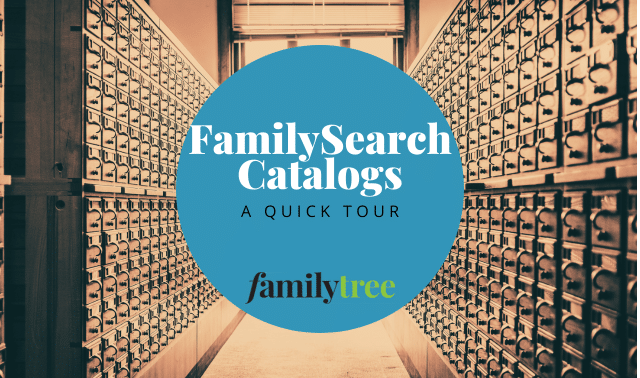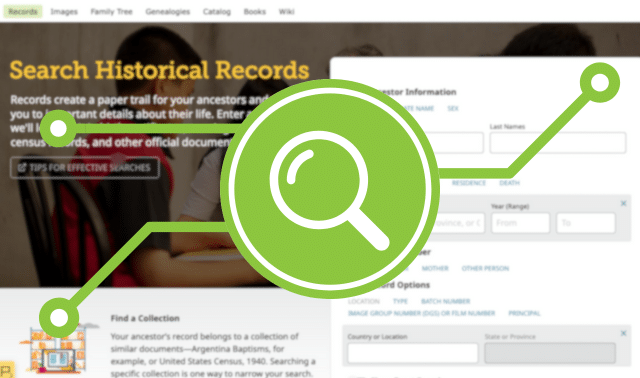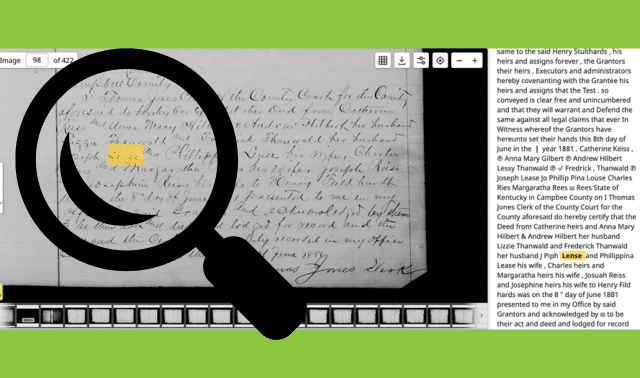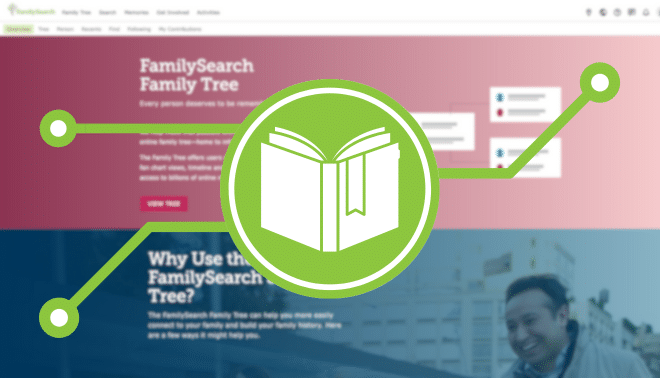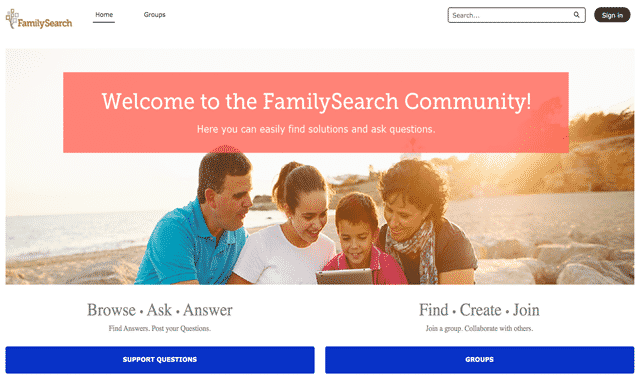
When it comes solving your thorniest genealogy problems, you really can’t have too many friends – especially if some of those friends are the expert staff at the Family History Library in Salt Lake City.
In addition to hundreds of thousands of visits the physical library still generates annually, of course, millions of hits are recorded by the library’s parent, FamilySearch.org and the ever-growing number of indexes and digitized records that the website encompasses.
The benefits of collaboration in FamilySearch Community
In an effort to help spur greater collaboration – and fight the trend in the Internet age that has made genealogy as solitary as social – enter FamilySearch Communities. Most of the communities are centered around researching a specific geographic place but also including groups with titles such as “FamilySearch Tips and Tricks” and for support in languages other than English.
To access the FamilySearch Community, you need to sign up for a free account with FamilySearch.org. Once you have a log-in, you can go to the community page.
From the front page of the FamilySearch Community, you are given the broad choice either to ask a question or find a group.
Ask a Question
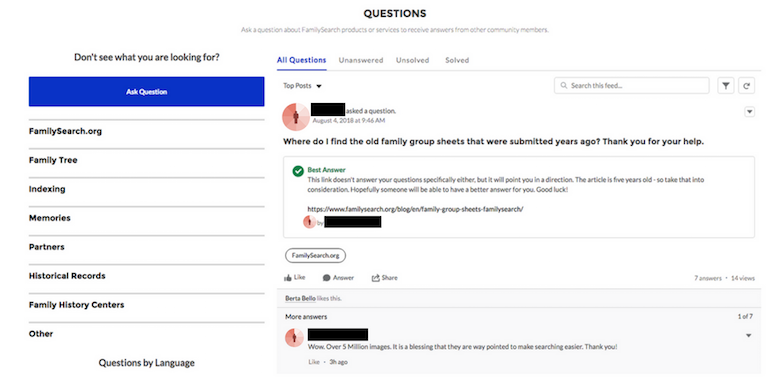
If you choose the question side, you’ll have the opportunity to search previously submitted questions – to see if what you need has already been asked and answered – as well as asking your own.
Find a Group
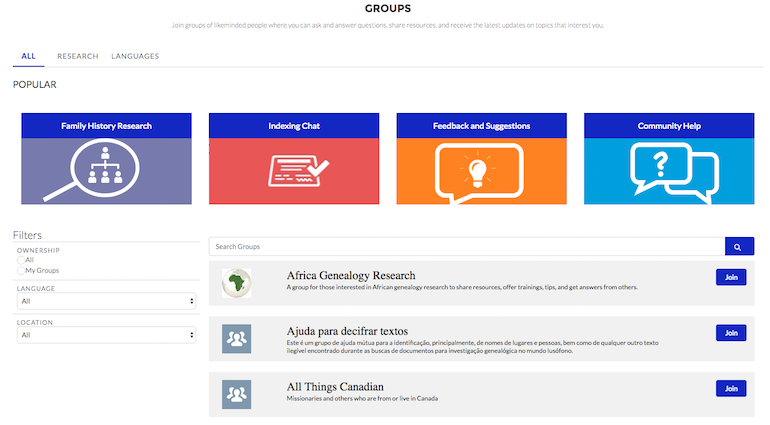
If you click on the group side, you’ll find a listing of the groups as well as filters to limit the groups that appear by language, location and topics.
The Community groups help unlock the expertise of FamilySearch employees from the Family History Library, who are the “whisperers” of its huge cache of microfilmed-becoming-digitized records, since many of them are active in the groups.
In addition to being able to post new questions in the groups, you can also look at the questions previously posed in that Community group. For example, many of the German group questions involve issues of language – transcribing the archaic German script in handwritten records or translating either handwritten or printed matter. If you join the group, which you can do by sending an e-mail to yourself, you’ll also receive a “weekly digest” of the questions and answers posed during the previous week. This is a great way to keep up, especially during busy weeks when you might not be personally active in that particular Community group.

